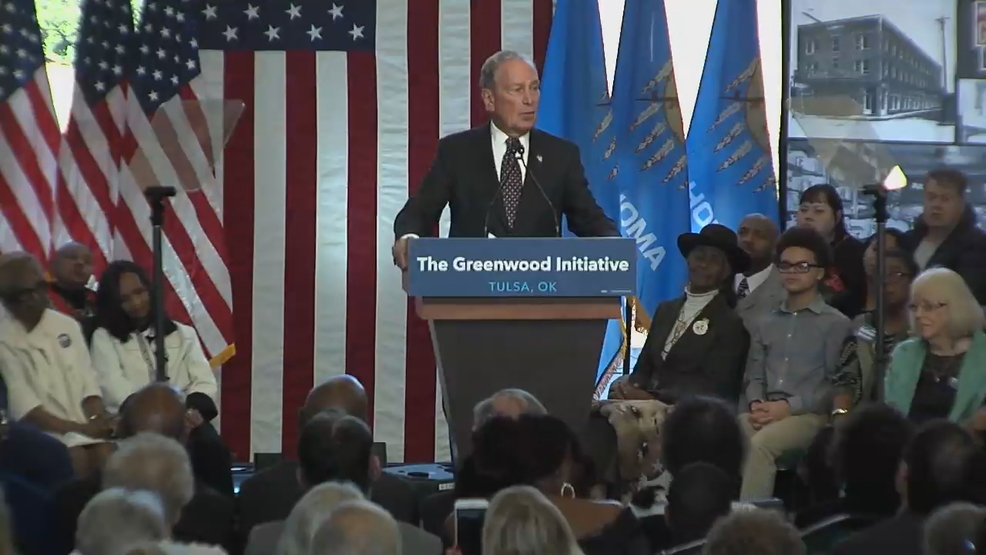
His name is Mike Bloomberg. And even a few weeks ago, I’d have told you he was wasting his money.
Bloomberg’s entry into the Democratic primary field in November struck me as nonsensical. The plan was to skip the first four contests while buying up virtually all of the airtime in the larger Super Tuesday states, amassing a long list of endorsements from mayors and spreading a lot of money around to candidates and party organizations.
Then the former New York mayor would just lie in the tall grass and wait for the campaign to come to him.
A brilliant plan, except for a few minor details. First, at a moment of intense partisanship and rising wokeness, Democratic voters really weren’t clamoring for another New York billionaire whose best-known policy is “stop-and-frisk.”
Second, in terms of bang for the buck, TV ads and endorsements aren’t what they were 30 years ago. Sure, having people hear your name over and over again (pollsters call it “name ID”) can boost your standing, and Bloomberg has risen to 8 or 9 percent in national polls.
But as Rudolph W. Giuliani could have told you before he started talking like a man marooned on an island with his volleyball, that kind of notoriety tends to mean nothing once people actually start voting. (Believe it or not, Giuliani led all the national polls late in 2007 — and captured exactly zero Republican delegates.)
Third, those first few primaries generally create a momentum that overtakes whatever came before. The handful of candidates who emerge intact from the opening contests can count on nonstop media coverage and overstuffed gymnasiums; it’s hard to just show up and elbow your way in.
For all those reasons, I always thought Bloomberg was far better off taking his hundreds of millions of dollars and jumping in as an independent candidate after the primaries, when he could waltz into the debates, like Ross Perot in 1992, and remind people of how dysfunctional the two-party system really is.
But there’s one scenario — and probably only one — in which Bloomberg’s weird theory of how he wins could actually become plausible. And it no longer seems so remote.
Let’s say Sanders wins in Iowa and then cleans up in New Hampshire a week later — a twofer no Democrat has pulled off without going on to secure the nomination since the advent of the Iowa caucuses in the 1970s. And let’s say that leaves his main rivals for the nomination right now — former vice president Joe Biden, Sen. Elizabeth Warren (Mass.) and former South Bend, Ind., mayor Pete Buttigieg — either badly weakened of out of the race altogether.
In other words, let’s assume Sanders emerges from the first few weeks of voting looking very much like Donald Trump did at that point in 2016: solidly ahead and having vanquished his most formidable rivals.
Then, all of a sudden, the campaign becomes about a single question: Can anyone stop Sanders?
And there, on every state ballot and every cable show and popping up during every commercial break, is a guy with unlimited resources and eerie self-possession, reminding Democrats about his very real work combating climate change and the National Rifle Association. There on the debate stage is Bloomberg, having finally met the criteria that party Chairman Tom Perez relaxed last week, probably anticipating this very outcome.
Suddenly, it’s not a battle of pluralities, but a head-to-head matchup between two heavyweight candidates with wholly different governing ideologies. And at that point Bloomberg — backed by some powerful forces in the party, no doubt — can put to Democrats a very stark choice.
Do you choose socialism or capitalism? An ideologue or an executive? Are you really going to ask Americans to trade one extreme for the other, or do you want to offer them a certified, electable moderate?
I’m not saying Democrats would actually choose Bloomberg in that moment. As party affiliations grow weaker nationally, primary electorates grow ever more strident, as we saw in the Republican race four years ago. And there might not be enough money in the world for Bloomberg to buy his way into the good graces of African Americans, a crucial voting bloc.
What I do know is that Bloomberg has only one real path to becoming a serious contender this year. And if Sanders rolls though Iowa and New Hampshire, that path won’t be nearly as narrow as it once looked.
Mike Bloomberg: More opinions on the 2020 candidate
Updated January 29, 2020
Read a Post op-ed by Bloomberg: Voters must demand that 2020 candidates answer this question
Explore columns from Post opinion writers and guests:
- John Ellis: Mike Bloomberg will soon be Democrats’ dream candidate
- Michele L. Norris: Bloomberg’s campaign is showing signs of viability among black voters
- Jennifer Rubin: Mike Bloomberg is right. But he’s not the right messenger.
- Jonathan Capehart: Billionaire Bloomberg snags the only Benjamin that matters in South Carolina
- Karen Tumulty: Bloomberg has a narrow path to winning. But he’ll sure get under Trump’s skin.
- Henry Olsen: Mike Bloomberg’s campaign makes absolutely no sense
Hear Jonathan Capehart’s interview with Bloomberg’s campaign manager, Kevin Sheekey, on the “Cape Up” podcast.
Just tuning in now? Here’s what to know about the 2020 Democratic race.
What will happen in the primaries? Play the Post Opinions Simulator to build your own possible outcomes.
How are Bloomberg and other candidates faring in the Post Pundit 2020 Power Ranking? Here’s the latest installment.
Want more on the 2020 elections? See all of The Post’s coverage.









